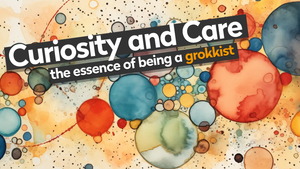The 1970s did not provide much nuance for those of us who were socially awkward.
These days, there are plenty of explanations for why social situations made me want to run very fast in the opposite direction or, if I couldn’t avoid them, left me feeling totally wrung out afterwards. Back then, though, there was only one popular label available to anyone without a therapist: shy.
Had I been born a century or two earlier, the label might have been ‘diffident.’ Nowadays, I could equally well lay claim to ‘introversion,’ ‘social anxiety disorder’ and ‘autism,’ all of which are seen as distinct from shyness and affect one’s ability to socialise comfortably. But back then, in my teens, shyness was the term people understood.
But back then, in my teens, shyness was the term people understood.
Shyness was an identity I took to with some enthusiasm.
Lots of people in the arts identified as shy. And shy people were surely gentle souls who were just a bit too sensitive for the brutal everyday world. As such, putting it about that you were a bit shy allowed you to duck out of social settings early or sit quietly in a corner talking to no-one. People understood. In fact, you could shy away from virtually anything with a clear conscience.
It wasn’t until I was at university that I got called out on this. Someone I didn’t know particularly well pounced on my tentative protestation of shyness and said, with the sort of directness that you would normally advise against, “Don’t give me shyness. Shyness is just selfishness by another name.”
I was taken aback. Back then, before the combination of neo-liberalism and self-esteem manuals had normalised self-interest, being selfish was seen as a uniformly bad trait.
I had not, hitherto, thought of myself as someone who was selfish. But, as I mulled the comment over, I had to admit that she had a point. I was going into social situations first and foremost thinking about my own discomfort and then letting that dictate how I behaved. It was certainly a case of putting my self first.
I was going into social situations first and foremost thinking about my own discomfort and then letting that dictate how I behaved.
A lot of my shyness came from constantly feeling viewed and judged; from a fear of people seeing that I was less than perfect.
I now realised that I was giving myself too much credit. Other people had plenty more on their minds than just focusing on me and my imperfections. Again, in assuming that the focus was on me, my reflexive behaviour was self-centred. Thus, if I was going to be intellectually honest, I needed to rethink how I was going to deal with all those situations.
Eventually, I determined that I should focus instead on putting other people at ease. If I concentrated on them, instead of on myself, I might be less caught up in my own embarrassment and uncertainty.
If I concentrated on them, instead of on me, I might be less caught up in my own embarrassment and uncertainty.
I’m not even going to pretend that putting this into practice was easy. It wasn’t. But it got better when I discovered just how much people like to talk about themselves. A few well-chosen questions at the start, and I could then settle into being a good listener. It was surprising how much I could still operate inside my own comfort zone while providing others with the pleasure of being heard.
Mind you, what I was doing was only getting about half-way towards being a truly generous interaction. But it was a start, and I think I gradually got better – at conveying ease, disguising my discomfort and genuinely relating to others.
That doesn’t mean that the embarrassment and uncertainty have gone away. They haven’t. I’m still a shy introvert and I struggle with social cues. But I think my approach is now more productive, and I have largely overcome the more pathological forms of social anxiety. If I haven’t yet reached complete comfort being around unfamiliar people, perhaps now I’m only just shy of it.

Each vignette invites readers to embrace the beauty of unfinished thinking and the art of holding life’s ongoing questions.











Member discussion